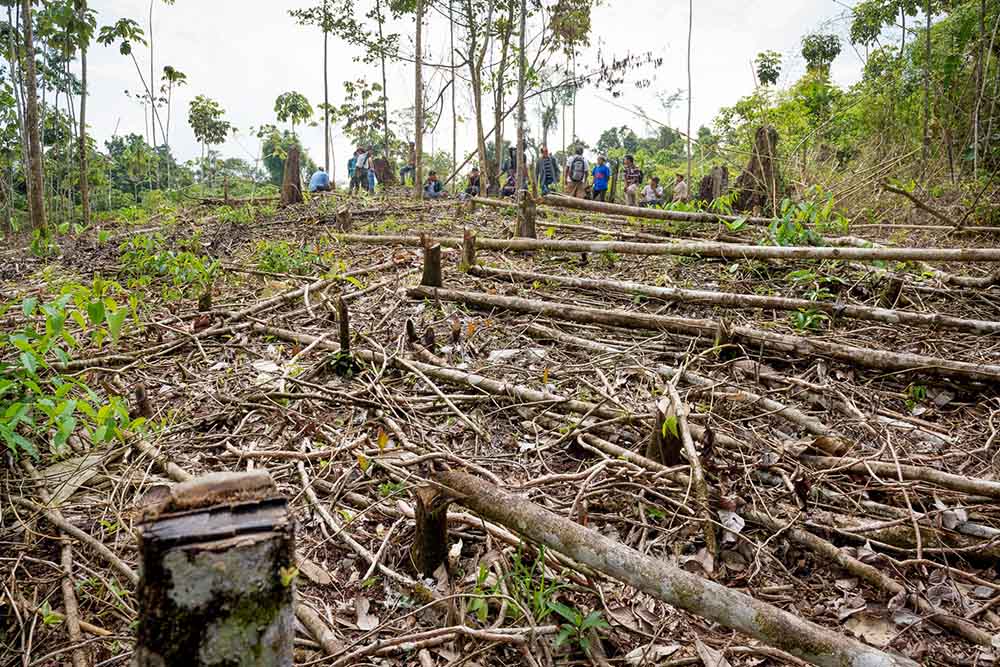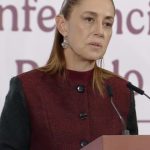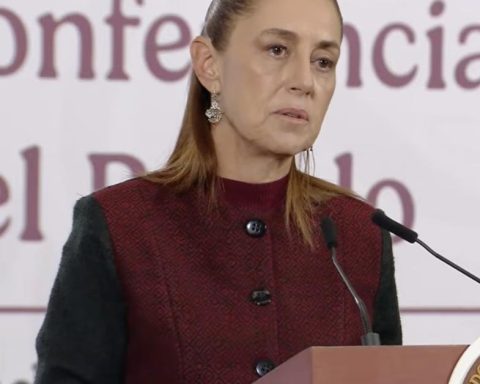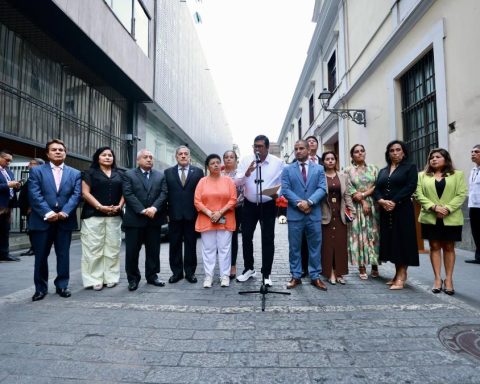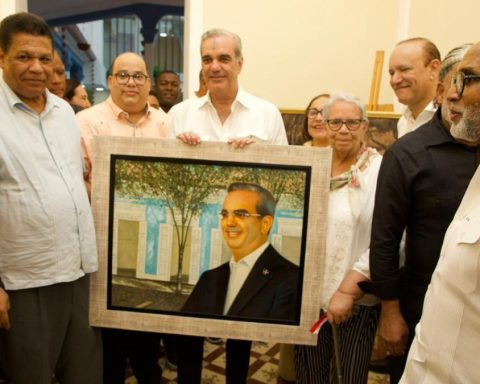The Independent Redress Mechanism (IRM) of the Green Climate Fund (GCF) will initiate a “compliance investigation” of the Bio-CLIMA program, approved in 2020 for Nicaragua, after verifying the eligibility of a complaint, which they received in June 2021, and conclude, in a “compliance assessment” report, that “there is evidence prima facie (at first sight) of adverse impacts caused or likely to be caused by the project’s noncompliance with operating policies and procedures.
“The IRM will now initiate a compliance investigation to delve into the matter and prepare a compliance report for the Board (of the Green Climate Fund),” the Mechanism indicated in the Compliance Assessment report released on March 24.
The “Bio-CLIMA: Integrated climate action to reduce deforestation and strengthen resilience in the Bosawás and Río San Juan biospheres” project was approved on November 13, 2020 for Nicaragua. The objective of the same, as stated, “is to restore degraded forest landscapes” in these reserves, and “promote sustainable management of land use and forest management.”
The accredited entity of the Bio-CLIMA project before the Green Climate Fund is the Central American Bank for Economic Integration (CABEI) and the executing entity is the Government of Nicaragua. The total cost of the project is 116,642,213 dollars, which includes financing from the Green Climate Fund and co-financing, with loans from CABEI and the Global Environment Facility.
Non-compliance of the Government of Nicaragua
In approving the project, the Board of Directors of the Green Climate Fund imposed special conditions to protect indigenous communities, provide an opportunity to alleviate some of the risks and ensure its proper implementation. Some of the conditions include the implementation of Free, Prior and Informed Consent (FPIC), and the selection of third parties in charge of independent monitoring of project execution.
However, these conditions were not met by the Government of Nicaragua. The complaint filed with the IRM, by people or organizations that requested confidentiality, indicates that before the approval of the project there was no adequate consultation with the communities, not even free, prior and informed consent.
They pointed out that its execution would provoke the degradation of the environment and new attacks by non-indigenous armed settlers, emphasizing that the areas affected by this project have already been victims of multiple attacks.
“The executing entity (Government of Nicaragua) will not fulfill its obligations in the execution of the Bio-CLIMA project,” warns the complaint.
The IRM Compliance Assessment report indicates that the Mechanism identified, in addition to the issues raised in the complaint, “possible non-compliances of the project with the policies and operational procedures of the Green Climate Fund by the GCF Secretariat, or by the Accredited Entity or the Executing Entity that, if proven, could negatively affect the claimant or claimants”.
Some of the “potential breaches” mentioned by the Mechanism, according to the report, are provisional environmental and social safeguards; Environmental and Social Policy, Indigenous Peoples Policy; and Gender Policy.
Prior to this Compliance Assessment report, the Mechanism launched the initial steps phase, which included attempts at mediation and problem resolution, but “the parties could not agree on the content and topics of the mediation” and , consequently, forwarded the complaint for a “compliance review” on January 17, 2022, requesting the Secretariat of the Green Climate Fund to provide a response to the complaint.
On March 3, the Fund Secretariat issued a response indicating that it had taken “additional steps to ensure that the AE (accredited entity) executes the project in accordance with GCF policies and procedures and Board conditions. ”.
Disbursements have not been made
On the date that the eligibility of the complaint was given, in July 2021, the Green Climate Fund and CABEI had not signed the Funded Activity Agreement (AAF) related to the project, so the funds have not yet been disbursed. to the Nicaraguan Government.
The Agreement for the project was executed until August 11, 2021 and, subsequently, entered into force on December 9, 2021. However, the Secretariat of the Green Climate Fund gave CABEI, as an accredited entity, a term until June 7, 2022 to comply with the conditions imposed by the Board when approving the Bio-CLIMA project, before the first disbursement of funds for this project.
The document released by the Mechanism does not detail how much that first disbursement would be in the event that CABEI and the Government of Nicaragua comply with the “conditions” imposed by the Board of the Green Climate Fund.
Environmentalist Amaru Ruiz, president of the Fundación del Río, stripped of its legal status by order of the Ortega-Murillo regime, explained that, as an “observer” of the negotiation processes that take place on climate change issues and in the Green Fund of Climate, found that this is the first time that the Independent Reparation Mechanism reaches an investigation process for possible breaches in an approved project, after the parties cannot reach mediation.
“What I intuit is that the Government does not want to show, evidence, or be shown the non-compliance situation, for example of Law 445, Sanitation Law, that part of the things that are established in the complaint, then, what You can guess that the Government does not want to look bad, because when entering these processes the regime has to present evidence to the accredited entity and obviously it did not leave or does not want to expose itself to its negligence and its actions,” Ruiz said.
He stressed that the Ortega regime will have greater pressure to collaborate with the investigation that is now beginning, since the accredited entity, CABEI, will also press because “they do not want to lose those funds either.”
“If the Nicaraguan regime wants those resources, it will have to let these independent representatives of the IRM enter to collect evidence of the investigation that they are going to generate,” he said.
CABEI has become, in the context of the sociopolitical crisis that the country has been experiencing since 2018, as the main source of resources for the Ortega-Murillo regime, accused of committing crimes against humanity against hundreds of Nicaraguans. Reports of CONFIDENTIAL They refer that CABEI approved, between January 2017 and June 2021, projects for 2,289,000,000 dollars.
Investigation would include on-site visits
The Independent Reparation Mechanism explained in its Evaluation report that the investigation contemplates the collection of “information, as appropriate, from all interested parties and affected witnesses, including the complainant or complainants, the Secretariat of the Green Fund, the accredited entity , the executing entity and other independent panels of the Fund”.
They stressed that the investigation may also “include document reviews, meetings, discussions, site visits, evidence gathering and expert opinions.”
At the conclusion of the investigation, the Mechanism will prepare a report to present it to the Board of the Green Climate Fund and this “will include the recommendations on corrective measures, if any, and that they are appropriate, in light of the conclusions.”
Ruiz pointed out that, although the IRM is not the one that decides whether the program continues to be implemented or not, the recommendations it gives will be essential for the Board of the Green Climate Fund to decide.
“If there is no guarantee of compliance, it could very well be that the project will even be paralyzed,” he said.
He stressed that the Mechanism would have up to a year to carry out the investigation and deliver said report and, he warned, if the Government of Nicaragua does not give its consent to support it, it would be “more counterproductive” and “in some way this would suggest that the complainants were right , that the project areas are invaded by settlers, that the rights of indigenous peoples in Nicaragua are not respected and that there is clear negligence by the State in these matters.”
